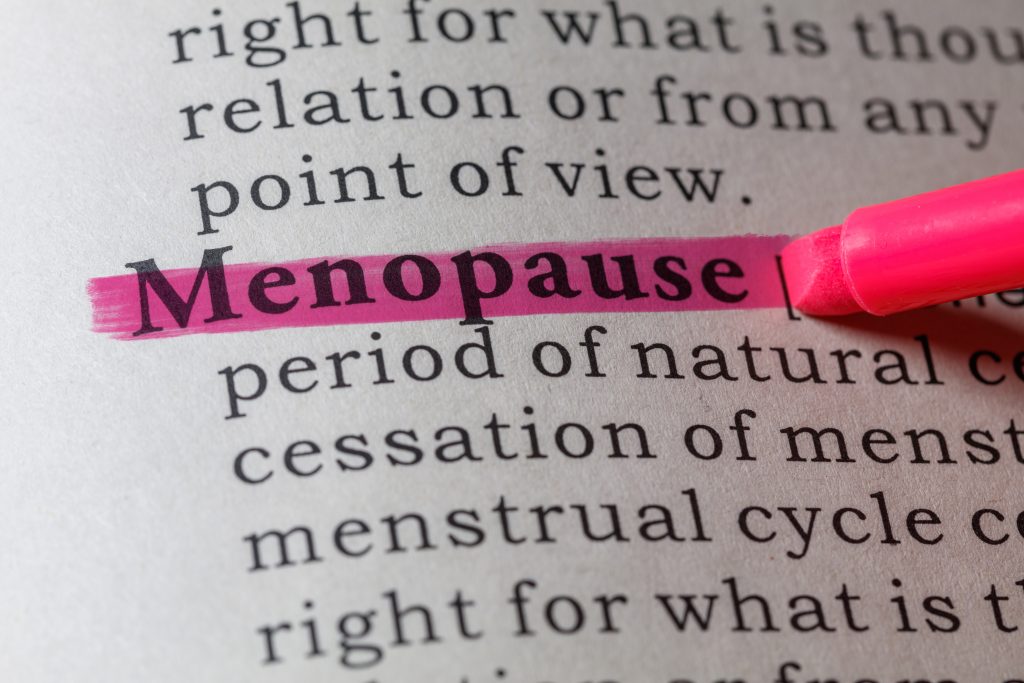Ambyr’s Menopause Journey
Is your family freezing as you crank down the thermostat? Do your joints ache and your hips feel like they’re being racked? Are you about to act out the no-wire-hangers scene from Mommie Dearest? If so, you may be in the desperate clutches of menopause.

After entering surgically induced menopause last year, I found my solution: bioidentical hormones. There is ample confusion surrounding this topic, so I’ve decided to get uncharacteristically personal here.
On my health journey, I discovered that the Internet offers a dizzying array of misinformation, especially on menopause. When it comes to bioidentical hormones, it has taken an immense amount of digging to uncover the facts. I’m not a doctor, but my experience is one I feel obliged to share.
So, what are bioidentical hormones? Bioidentical hormones are naturally derived from plants to be molecularly identical to the hormones produced by our bodies. Because of this molecularly identical match-up, our bodies know exactly how to use these hormones, eliminating a smorgasbord of unwanted side effects common from synthetic hormones, which can make the solution more unbearable than the original symptoms.

Although the FDA has approved some bioidentical hormones covered by insurance, individually compounded hormones and pellets are not FDA-approved and therefore not covered by insurance. (A perplexing side note: bioidentical testosterone pellets are FDA-approved and are covered by insurance for men. I’ll leave that morsel of truth here.)
So, if FDA-approved bioidentical hormones are not tailored to each individual body and personalized bioidentical hormones are not covered by insurance, what is the point of using hormones? Well, according to the Mayo Clinic, declining hormone levels increase the risk of cardiovascular disease, osteoporosis, and urinary incontinence. Other side effects include powerful mood swings, brain fog, hot flashes that can coincide with heart palpitations, insomnia, slower metabolism, weight gain, acne, dry skin, thinning hair, vaginal dryness, pain during intercourse, and the depressing list goes on and on.
After decades of synthetic hormones to treat endometriosis, I was determined to avoid hormones after a hysterectomy. Two weeks after a second surgery that removed my last ovary, I had all the side effects of menopause. Soon, my husband, son, and dogs were freezing to death, my clothes hated me, and my emotions were so erratic that it’s a miracle my marriage stayed together. My doctor, Dr. Minton at the FEM Center, accurately compared surgically-induced menopause as being “hormonally pushed off a cliff.” This wasn’t the gradual descent into the madness of menopause; it was a rapid plunge into vanishing hormones and incredibly powerful symptoms. Within days of getting bioidentical estrogen and testosterone pellets, along with bioidentical progesterone cream, I felt better than I had in decades!
I have comprehensive annual lab work to ensure my nutrient levels are optimal and biannual hormone labs. These indicate the exact level of bioidentical hormones my body needs and reveal how fast my body uses these hormones. Some people burn through hormones faster than others, depending on activity level, stress, and many other factors. With exact dosing of estrogen and testosterone pellets and personally compounded progesterone creams, my body receives the precise amount of hormones I need.

Fake Dictionary, Dictionary definition of the word menopause.
There is an abundance of conflicting information regarding bioidentical hormones. Because individually compounded and pellet bioidenticals are not FDA-approved, they are not funded for pharmaceutical research or covered by insurance. The FDA, the North American Menopause Society, and the American College of Obstetrics and Gynecologists do not endorse bioidentical hormones in pellet or compounded form. There is a movement to discredit them, but here are some facts that are published less often.
Bioidentical hormones from compounding pharmacies use FDA-approved bioidentical hormones when formulating a prescription. They simply adjust the level and dosage to treat your specific hormone level. Like a human fingerprint, no one’s hormone level is the same. Still, the FDA doesn’t regulate anything that’s not wholly standardized. This led to the belief that compounding pharmacies are unregulated and unsafe. Compounding pharmacies are regulated by the state Board of Pharmacies and the Pharmacy Compounding Accreditation Standards. Because the FDA doesn’t regulate personally tailored hormones, they are not covered by insurance – unless you’re a man with low testosterone. However, with a referral, your doctor’s visits and lab work are covered by most insurance.
My quality of life has drastically improved with these hormones. There are better alternatives to menopause treatment available, and I hope this opens a window for anyone who is suffering through this incredibly difficult journey.


 Sign in
Sign in

